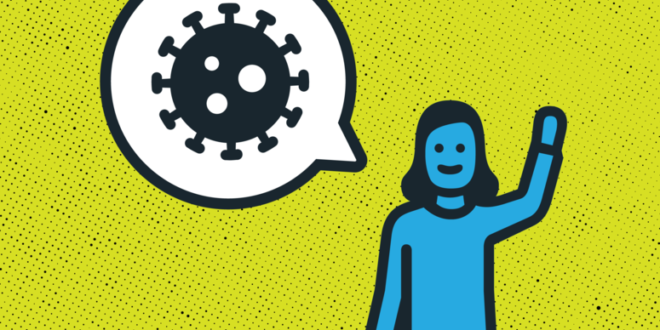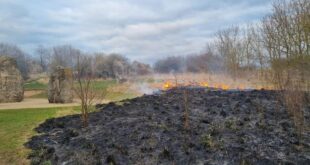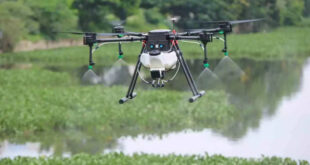US airlines have enacted a range of other measures, stopping onboard sorting of trash for recycling (so flight attendants don’t have to touch used items), switching to disposable cups for business and first-class passengers, and eliminating “water walks” unless flight attendants can hand out individual bottles of water.
Delta is stocking up on machines to fog its aircraft. Last month, it began filling every plane that landed in the US after a transpacific flight with an airborne disinfectant that’s meant to decontaminate every surface. It expanded the process to flights coming to the US from Italy last week and is now moving to fog every plane coming from across the Atlantic. Delta is also providing what it calls Tidy Kits to lavatory-bound passengers, which include gloves, disinfecting wipes, and a “mini-mop.”
Flight attendants—who don’t have the option to stay grounded or sequester themselves in a window seat—have called on airlines to make a suite of changes. The Association of Flight Attendants–CWA, which has nearly 50,000 members at 20 carriers, says some of those requests have been met. Carriers have agreed to allow flight attendants to wear non-latex gloves at all times, to give passengers disinfecting wipes, and to accommodate attendants who are immunocompromised or pregnant. Other demands haven’t been met, the union says, including providing surgical masks for sneezing or coughing passengers, giving each passenger a leakproof vomit bag, and making those “no-go items,” without which the airplane won’t take off.
The union has also called for the mounting of hand-sanitizer dispensers near galleys and lavatories, for crew and passengers to use. That requires approval from the FAA and the Pipeline and Hazardous Materials Safety Administration, given the flammable nature of the germ-killing goo. (Neither agency responded to a request for comment.)
Also in the line of fire are the men and women who clean airplanes. Jasmine Reese, who works for Jetstream Ground Services at Los Angeles International Airport—where at least one worker has tested positive for Covid-19—says she and her colleagues weren’t given gloves or face masks for the first several weeks of the virus’ spread. Their work included cleaning American Airlines planes coming from Hong Kong before the airline suspended service to the city and mainland China. Jetstream just recently started providing gloves, says Reese, who is five months pregnant. (She has been using gloves she took from her doctor’s office.) And, Reese says, Jetstream only this week told workers to sign up for training on how to handle the virus. Neither Jetstream nor American Airlines replied to a request for comment.
The extra cleaning will hurt airlines’ ability to minimize ground time, but some research suggests slowing things down could help in other ways. The boarding process involves lots of contact between passengers. People crowd down the aisle, forming clumps as they squeeze into seats and stop to load suitcases into the overhead bins. It’s far worse than the deplaning process for germ transfer, says Ashok Srinivasan, a professor at the University of West Florida who leads the Viral Infection Propagation Through Air-Travel project. His team has studied how people move through airports and planes, and he recommends changing procedures to keep people spread out on their way to cramming into their seats. That could mean slowing the rate at which people get into the aircraft, or changing the order, even if it’s not the most efficient way. “If you’re willing to spend maybe three to five minutes more, you can actually substantially reduce the likelihood of infection spread,” Srinivasan says.
Within the world of transportation, airlines seem to have a distinct advantage: After each flight, their aircraft are emptied out, providing the opportunity for regular and full cleanings. Those running bus and train services don’t always have that option. Instead, transit agencies in the US have focused on periodic cleaning throughout the day and more intensive surface scrubs when vehicles go out of service for the night.
 Unmanned Aerial Vehicle The latest drone news
Unmanned Aerial Vehicle The latest drone news



